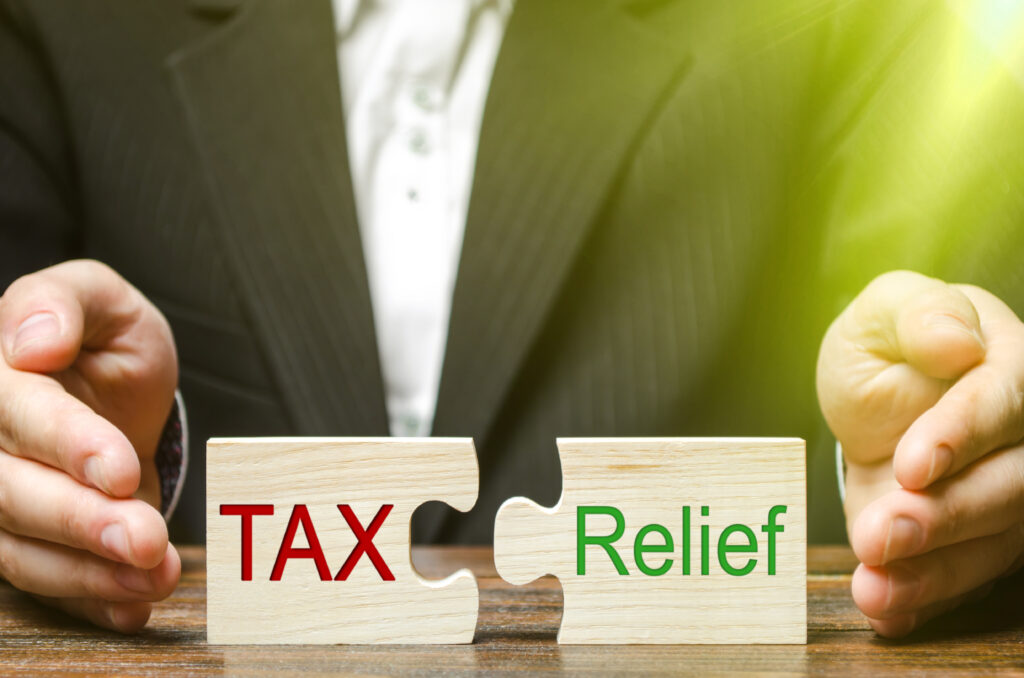The joy of giving is well documented and can make your life happier. When you spend money on yourself, the happiness experienced after that purchase or experience will fade each time it’s repeated. This is known as hedonic adaptation and you can read more about it from the Association of Psychological Science.
The happiness experienced when helping others, however, seems not to fade with repetition. Whether donating your time or money, the joy of giving can provide a positive and sustained boost to long term wellbeing.
Think of the support you provide to good causes through raffles, cash donations and other fundraisers. These efforts don’t just have an important benefit to the organisations you support. Studies show that giving activates the ‘reward centre’ in your brain. It can improve life satisfaction, increase happiness and reduce stress.
The Joy of Giving (not to the tax man)
Despite all of these benefits, your gifts may not always be efficient, from a financial planning point of view. Charities can benefit so much more with help from the taxman, after a bit of planning.

For example, you have probably heard of Gift Aid. This is where you declare that you’re a taxpayer by ticking a couple of boxes and providing your name and address. The charity can then claim an additional 25% from HMRC.
Higher rate taxpayers may claim additional tax relief through their tax return. Your chosen charity will not benefit directly from this high rate relief, but it will help reduce your tax bill.
So Gift Aid is a simple and well know method of boosting the joy of giving through tax efficiencies. Let’s look at some other ideas.
1. Give As You Earn
Give As You Earn (GAYE) is an efficient way to benefit from tax relief through your employer. With this arrangement, charitable donations are taken straight from your gross salary. So for a standard rate taxpayer, a donation of £50 means a reduction in net salary of only £40. Higher rate taxpayers would see a net reduction in pay of only £30.
Some employers might even match what you donate, up to a certain level. This means even more money for your favourite charities, so it’s worth checking if this is part of your benefits package.
GAYE schemes are facilitated by organisations like the Charities Aid Foundation and Benevity. Even if your employer is unable to offer such a scheme, you can still register as an individual. That way, you can benefit from tax relief by making regular gifts by direct debit. Their websites offer loads of information about making the most of your charitable giving.
2. Lifetime gifting to reduce your estate
Many people become concerned about the prospect of inheritance tax as they get older. After all, there seems little joy in accumulating capital throughout life, only for it to be taxed by as much as 40% upon death.
Arguably, even more important than the potential tax saving is the concept of “giving with a warm hand” (rather than giving with a cold hand after death). A lot of satisfaction can be gained by seeing the benefits of a gift whilst you’re still around to see it. That applies whether gifting your time and money to family and friends, or organisations that you care about.
Lifetime gifts of any amount will usually become exempt from inheritance tax, upon survival of 7 years after making the gift.

It can often be a fear of running out of money that prevents lifetime gifting. It needs to be balanced against keeping enough money for your own lifetime needs. This is where lifetime cashflow modelling can be valuable, as part of a wider financial plan. You can read more about cashflow modelling here, but in short, it helps you to visualise your annual cashflow for the remainder of your life. That can really help when deciding what might be available for gifting.
3. Active philanthropy
Philanthropy is not the same as charity. Charity focuses on eliminating the suffering caused by social problems, while philanthropy focuses on eliminating social problems.
And it’s not just for the rich and famous. Private philanthropy can be a much more satisfying way to provide support. This is because, rather than making ‘passive’ cash donations to a charity, it involves a more ‘active’ role. With the concept of ‘Donor Advised Giving’, you can have more of a say in how your money is used.
Check out Donor Advised Funds on the Charities Aid Foundation website.
The Joy of Giving: Summary
Much of our financial wellbeing comes from giving money away, rather than keeping it or spending it on ourselves. Decisions on how much to give, to whom and when can be tricky, though. Especially with the need to balance these decisions against our own financial security.
Financial coaching and planning can help you tackle these decisions. Often, it’s the emotional side of money that needs some focus. When combined with analysis of your cashflow situation, this can be a highly empowering approach to experience the joy of giving.




 Production
Production